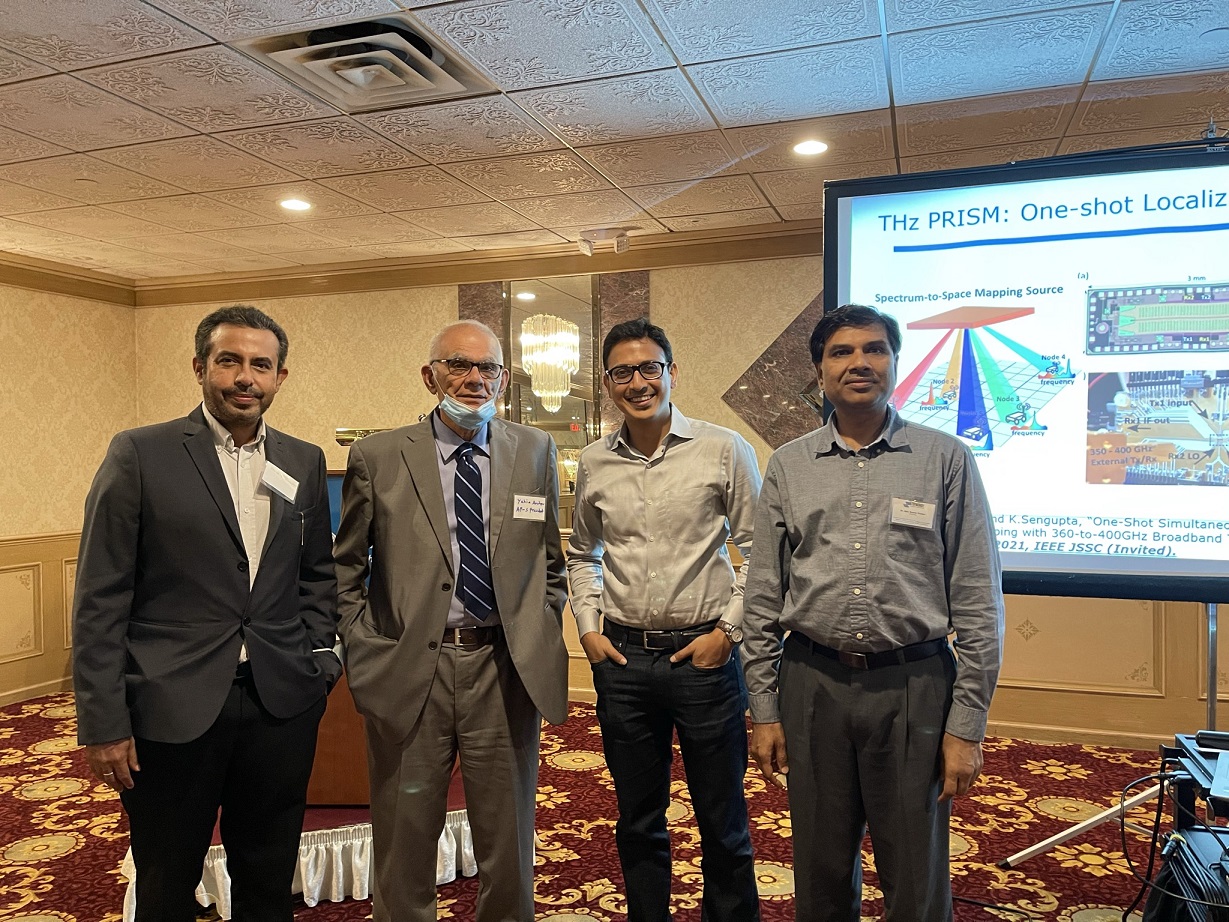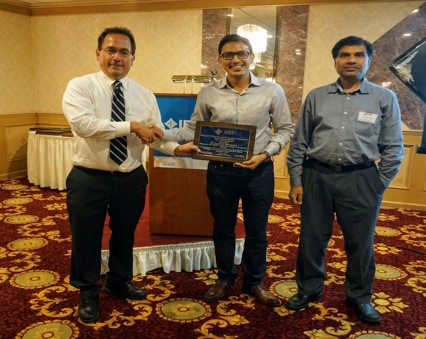Terahertz chip-scale systems
IEEE AP/MTT Mini Show

Engineers and scientists make technological changes that impact the real world. They also receive blowback when things do not go as planned, and things pretty much never go as planned. This presentation provides a roadmap for anticipating consequences, using historical analogies, systems thinking that includes socioeconomic factors, attention to social practices and how they change, reflective professional practices, and straightforward moral reasoning. The goal of the presentation is to get innovators talking about how to avoid undesirable outcomes in their own work.
Date and Time
Location
Hosts
Registration
Speakers
 Dr. Kaushik Sengupta of Princeton University
Dr. Kaushik Sengupta of Princeton University
Terahertz chip-scale systems
Engineers and scientists make technological changes that impact the real world. They also receive blowback when things do not go as planned, and things pretty much never go as planned. This presentation provides a roadmap for anticipating consequences, using historical analogies, systems thinking that includes socioeconomic factors, attention to social practices and how they change, reflective professional practices, and straightforward moral reasoning. The goal of the presentation is to get innovators talking about how to avoid undesirable outcomes in their own work.
Biography:
Kaushik Sengupta received the B.Tech. and M.Tech. degrees in electronics and electrical communication engineering from IIT Kharagpur, Kharagpur, India, in 2007, and the M.S. and Ph.D. degrees in electrical engineering from the California Institute of Technology (Caltech), Pasadena, CA, USA, in 2008 and 2012, respectively. In 2013, he joined the Department of Electrical Engineering, Princeton University, Princeton, NJ, USA, as a Faculty Member. His current research interests include high-frequency ICs, electromagnetics, and optics for various applications in sensing, imaging, and high-speed communication.
Dr. Sengupta received the Bell Labs Prize (2017), Young Investigator Program (YIP) Award from the Office of Naval Research in 2017, the DARPA Young Faculty Award (2018), and the E. Lawrence Keys, Jr./Emerson Electric Co. Junior Faculty Award. He was six times selected to the Princeton Engineering Commendation List for Outstanding Teaching in 2014, 2016, 2017, 2018, 2019, and 2020, and received the ‘Excellence in Teaching Award’ from the School of Engineering at Princeton University in 2018 nominated by the Undergraduate and Graduate Student Council. He is currently serving as a steering committee member of IMS 2021 as workshop co-chair and as a member of the MTT-4 Committee on Terahertz technology and has served on the Technical Program Committee of the IEEE ESSCIRC, IEEE CICC, IEEE ICC, and PIERS. He is co-recipient of the 2015 MTT-S Microwave Prize. He is currently serving as a Distinguished Lecturer for IEEE Solid-State Circuits Society (2019-2020), and will serve as a Distinguished Lecturer for IEEE Microwave Theory and Techniques (2021-2023).
Email:
Address:Associate Professor Director of IMRL Lab, Princeton University, Princeton, United States
Agenda
For further information contact:
IEEE NORTH JERSEY SECTION CHAIR & MTT/AP CHAPTER CHAIR – AJAY KUMAR PODDAR (201-560-3806),akpoddar@ieee.org
CHAIR - GENERAL-EXHIBITION: KIRIT DIXIT (201-669-7599), kdixit@ieee.org
CHAIR – TECHNICAL PROGRAMS: GEORGE KANNELL(973-261-1421),george.kannell@gd-ms.com
THERE IS NO CHARGE TO ATTEND THE SYMPOSIUM OR SHOW.

 Add Event to Calendar
Add Event to Calendar